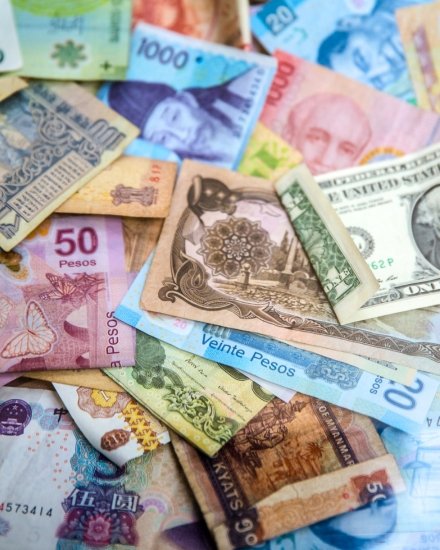
Navigating Currency Exchange

Embarking on a new adventure often involves crossing borders and immersing yourself in diverse cultures. One essential aspect of international travel that can significantly impact your journey is currency exchange. Whether you are a seasoned globetrotter or a first-time traveller, understanding the ins and outs of exchanging currency can make your expedition smoother and more enjoyable.
Currency exchange is like a dance – a choreography of rates, fees and convenience. Before you jet off, it is crucial to familiarise yourself with the local currency of your destination and have a basic understanding of the exchange process.
Research and Preparation
Know the Local Currency: Research the local currency of your destination. Familiarise yourself with its denominations, symbols and any unique features to avoid confusion when handling cash.
Exchange Rates: Keep an eye on exchange rates before your trip. While rates fluctuate, having a general idea of the current values will help you make informed decisions.
Options for Currency Exchange
Banks and ATMs: Banks typically offer competitive rates and can be found in most destinations. Using ATMs to withdraw local currency is often convenient, but be aware of potential withdrawal fees.
Currency Exchange Counters: Airports, hotels, and city centres often host currency exchange counters. While convenient, these may charge higher fees or offer less favourable rates.
Credit Cards: Many establishments worldwide accept credit cards. However, check with your bank about foreign transaction fees and notify them of your travel dates to avoid any issues.
Tips for a Smooth Exchange
Avoid Airport Currency Exchange Kiosks: While convenient, airport currency exchange kiosks tend to have less favourable rates and higher fees. Consider exchanging a small amount for immediate needs and then seek better rates in the city.
Use Local ATMs wisely: ATMs are convenient, but be cautious of excessive withdrawal fees. Opt for ATMs affiliated with major banks, and withdraw larger sums less frequently to minimize charges.
Notify your bank: Inform your bank of your travel dates and destination to prevent your card from being flagged for suspicious activity.

Safety Measures
Divide Your Currency: Stash your money in different places – some in your wallet, some in a money belt, and some in your luggage. This minimises the risk of losing everything in case of theft.
Emergency Cash: Carry a small amount of the local currency in cash for emergencies. Not all places accept cards, and having some local currency can be a lifesaver in unforeseen situations.
Currency exchange is an integral part of international travel, and mastering it enhances your overall experience. By conducting thorough research, choosing the right avenues, and staying informed, you can navigate the currency exchange dance with confidence. So, as you set out on your next adventure, may your currency exchanges be seamless, your pockets full, and your journey unforgettable. Happy travels!




